Search
Remove Ads
Advertisement
Search Results

Definition
Phoenicia
Phoenicia was an ancient civilization composed of independent city-states located along the coast of the Mediterranean Sea stretching through what is now Syria, Lebanon and northern Israel. The Phoenicians were a great maritime people, known...
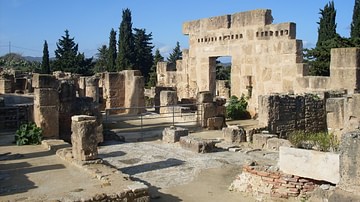
Definition
Utica
Utica (also Utique), 33km north of Tunis, was the first Phoenician colony on the North African coast. The strategically important port was an ally to Carthage in the First Punic War, but the city switched sides in the Second and Third Punic...
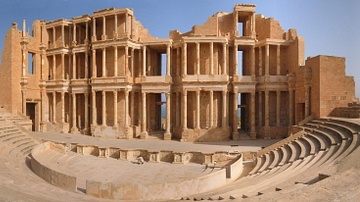
Definition
Sabratha
Sabratha was an ancient port city on the coast of North Africa (in modern-day Libya). The site was originally inhabited by the indigenous Berber Zwagha tribe in the 8th century BCE (according to the 11th-century CE historian al-Bakari) who...
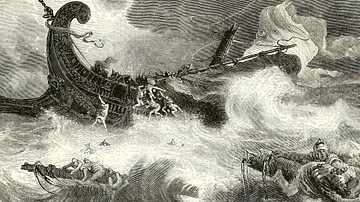
Definition
Yamm
Yamm (from the Semitic word yam for 'sea', also known as Yam and Yam-Nahar) was the god of the sea and storm in the pantheon of the Canaanite-Phoenicians. Depicted consistently as tyrannical, angry, violent, and harsh, Yamm was the brother...
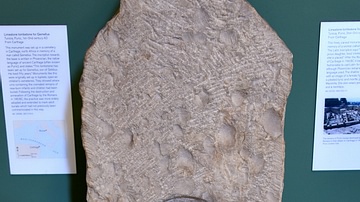
Image
Carthaginian Tombstone for Gemellus
This limestone monument was set up in a cemetery in Carthage, in memory of a man called Gemellus. The inscription towards the base is written in Phoenician, the native language of ancient Carthage, often known as Punic, and states "This tombstone...
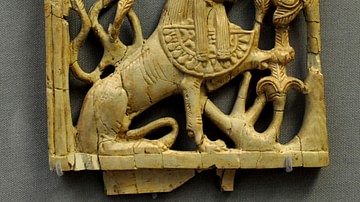
Definition
Phoenician Art
The art of the ancient Phoenicians, which flourished between the 19th and 4th centuries BCE, was exported throughout Mesopotamia and the ancient Mediterranean. Best known for their work on small decorative objects, Phoenician artists skillfully...
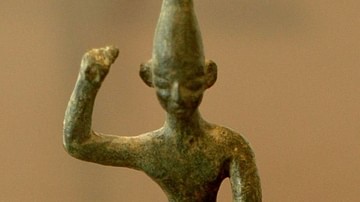
Definition
Baal
Baal (also given as Ba'al) is a Canaanite-Phoenician god of fertility and weather, specifically rainstorms. The name was also used as a title, however, meaning "Lord" and was applied to a number of different deities throughout the ancient...
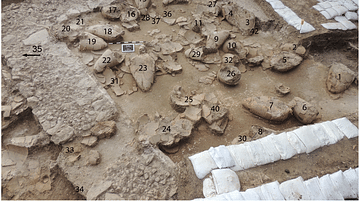
Definition
Tel Kabri
Tel Kabri is an archaeological site in the Western Galilee in northwestern Israel and the location of one of the largest palaces in Canaan in the Middle Bronze Age or "MB" (c. 2,000–1,500 BCE), the period in which Tel Kabri was at the height...
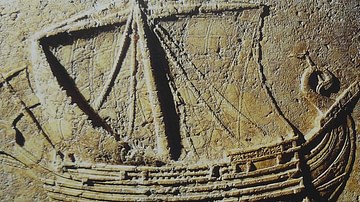
Article
Trade in the Phoenician World
The Phoenicians, based on a narrow coastal strip of the Levant, put their excellent seafaring skills to good use and created a network of colonies and trade centres across the ancient Mediterranean. Their major trade routes were by sea to...
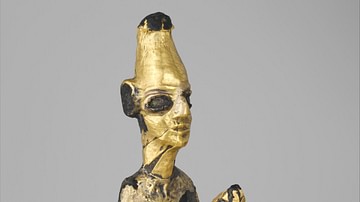
Definition
Canaan
Canaan was the name of a large and prosperous ancient country (at times independent, at others a tributary to Egypt) located in the Levant region of present-day Lebanon, Syria, Jordan, and Israel. It was also known as Phoenicia. The origin...